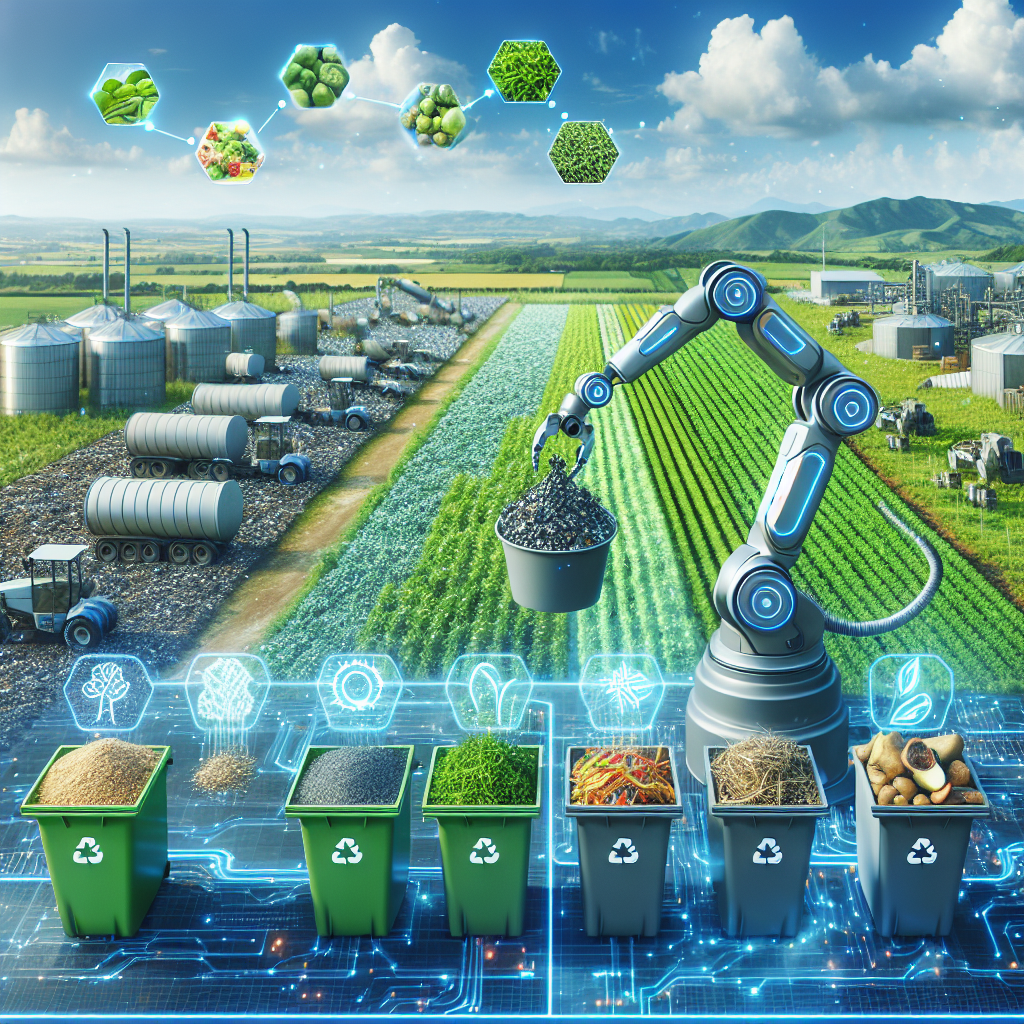In recent years, there has been a growing interest in using artificial intelligence (AI) for agricultural waste recycling. As the world’s population continues to grow, so does the need for sustainable practices in agriculture. One of the key challenges facing the agricultural industry is how to effectively manage and recycle waste generated during the production process. AI has the potential to revolutionize this process by providing innovative solutions that can increase efficiency, reduce costs, and minimize environmental impact.
AI Applications for Agricultural Waste Recycling
1. Predictive Analytics: AI can be used to analyze large amounts of data collected from farms to predict when and where waste is likely to be generated. By using predictive analytics, farmers can proactively manage their waste and implement strategies to reduce its impact on the environment.
2. Robotics and Automation: AI-powered robots can be used to sort, collect, and process agricultural waste more efficiently than traditional methods. These robots can be programmed to identify different types of waste and separate them for recycling or disposal, reducing the need for manual labor and increasing overall efficiency.
3. Smart Sensors: AI can be used to develop smart sensors that can monitor waste levels in real-time and alert farmers when bins need to be emptied or when waste is reaching critical levels. This can help farmers to better manage their waste and prevent overflow or contamination.
4. Waste-to-Energy Conversion: AI can be used to optimize waste-to-energy conversion processes, such as anaerobic digestion or composting. By analyzing data on waste composition, temperature, and moisture levels, AI can help farmers to maximize energy production and reduce greenhouse gas emissions.
5. Supply Chain Optimization: AI can be used to optimize the entire waste recycling supply chain, from collection to processing to distribution. By using AI algorithms to analyze data on waste generation, transportation routes, and processing facilities, farmers can identify opportunities to reduce costs and improve efficiency.
6. Decision Support Systems: AI can be used to develop decision support systems that help farmers make informed choices about waste management practices. By analyzing data on environmental regulations, market prices, and technology options, AI can provide recommendations on the most sustainable and cost-effective solutions for recycling agricultural waste.
FAQs
Q: How can AI help farmers reduce waste generation in agriculture?
A: AI can help farmers reduce waste generation by providing predictive analytics that identify when and where waste is likely to be generated. By implementing proactive waste management strategies, farmers can minimize waste production and improve overall sustainability.
Q: What are the environmental benefits of using AI for agricultural waste recycling?
A: Using AI for agricultural waste recycling can help reduce greenhouse gas emissions, decrease landfill waste, and conserve natural resources. By optimizing waste-to-energy conversion processes and implementing efficient waste management practices, AI can help farmers minimize their environmental impact.
Q: Are there any challenges to using AI for agricultural waste recycling?
A: One of the main challenges to using AI for agricultural waste recycling is the initial cost of implementing AI technologies. Additionally, there may be technical challenges in integrating AI systems with existing farm infrastructure and data management systems. However, the long-term benefits of using AI for waste recycling can outweigh these challenges.
Q: How can farmers get started with using AI for agricultural waste recycling?
A: Farmers can start by conducting a waste audit to identify the types and quantities of waste generated on their farms. They can then research AI technologies and solutions that are suitable for their specific needs and budget. Collaborating with AI experts and technology providers can also help farmers to implement AI solutions for agricultural waste recycling.
In conclusion, AI has the potential to revolutionize agricultural waste recycling by providing innovative solutions that increase efficiency, reduce costs, and minimize environmental impact. By leveraging predictive analytics, robotics, smart sensors, and decision support systems, farmers can optimize their waste management practices and contribute to a more sustainable future for agriculture. While there may be challenges to implementing AI technologies, the long-term benefits of using AI for agricultural waste recycling are significant and can help farmers to improve their operations and reduce their environmental footprint.

